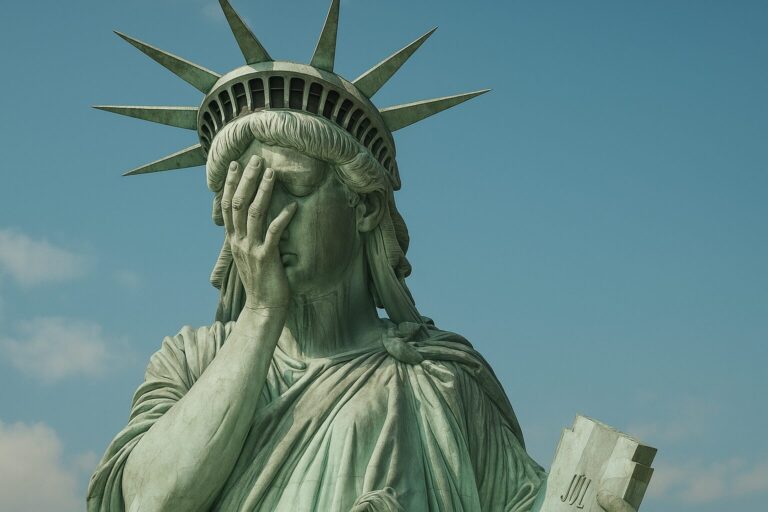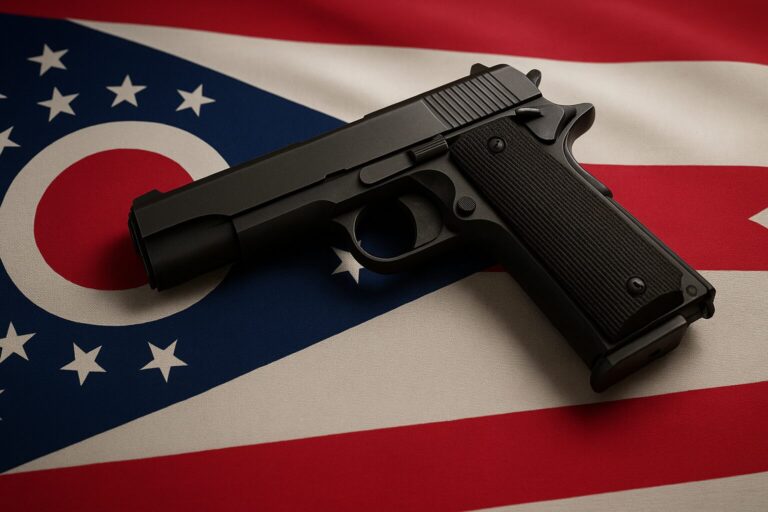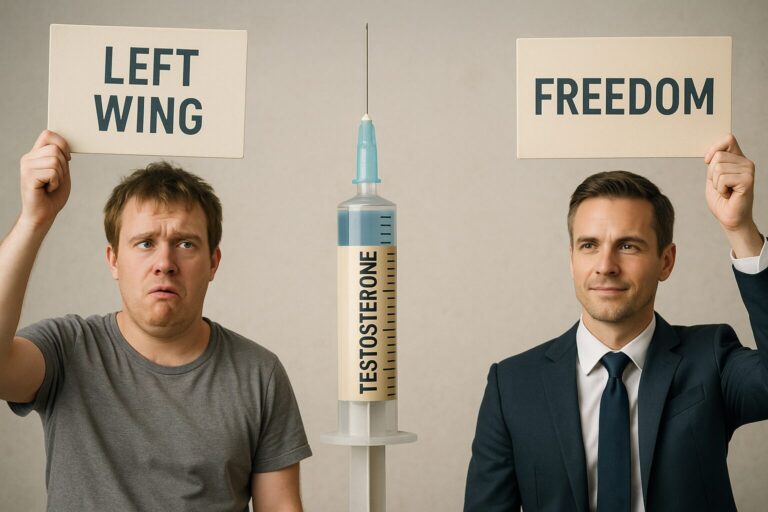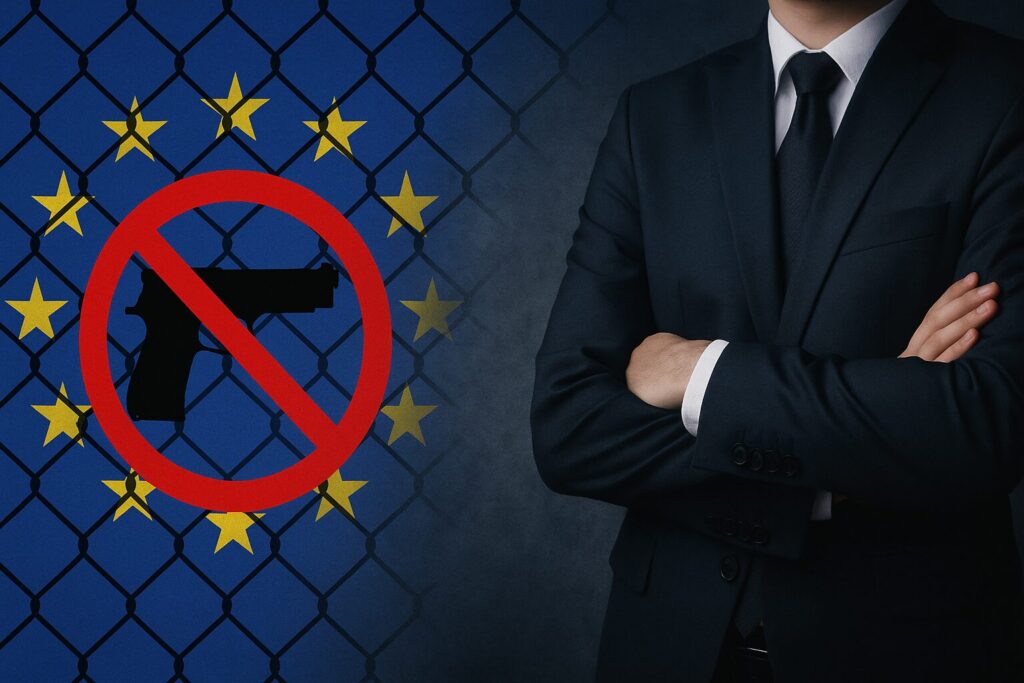
This question is uncomfortable because it exposes a paradox: while presenting themselves as liberal democracies, many European countries, in practice, uphold a culture of state control and deep distrust of the average citizen — especially regarding the right to self-defense.
After all, if communism is characterized by power centralization and the state’s monopoly on force, why do capitalist nations adopt the same stance when it comes to gun access?
The answer begins with a broader perspective: modern European political culture tends to restrict individual freedom on multiple fronts — and civilian armament is just one manifestation of this mindset.
🔒 Economic Freedom: High Taxes, Strong State Control
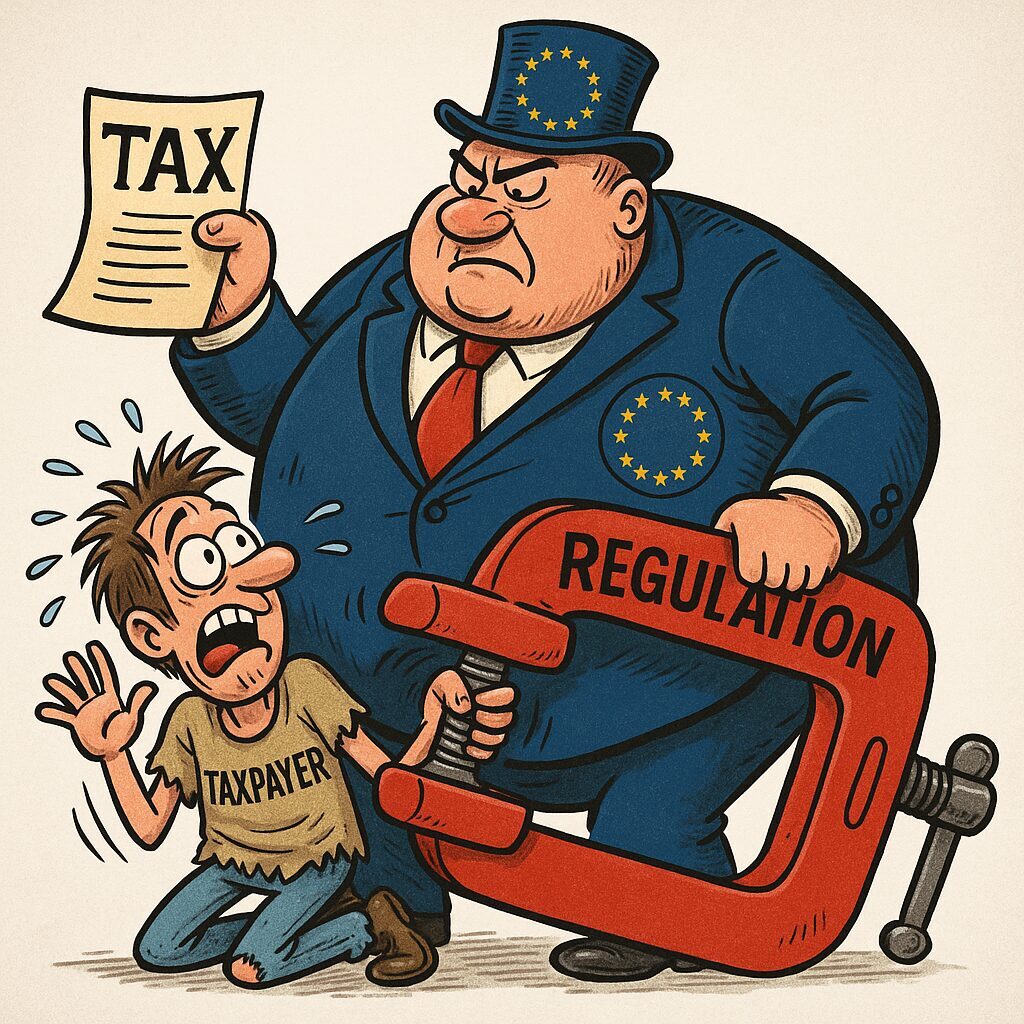
Europe, with few exceptions, does not embody liberal economies — at least not in the classical sense. State presence in the economy is massive, and taxation reflects that:
- France: 45.6% of GDP in tax burden
- Belgium: 44.8%
- Denmark: 44.1%
- Italy: 42.0%
- Germany: 41.9%
These numbers show that nearly half of all wealth produced by citizens is appropriated by the State, which then decides how it will be redistributed. This stifles individual initiative and concentrates political and economic power in the hands of centralized bureaucracy.
🗣️ Freedom of Speech: Censorship in a Suit

Even under democratically elected governments, many European countries enforce speech control:
- In the UK, over 250,000 “non-crime hate incidents” were recorded between 2014 and 2021 — people surveilled or punished for opinions that didn’t even break any laws.
- In France, laws against “public offenses” have been used to suppress religious, political, and cultural expression.
- In Greece, the government has been accused of using spyware against journalists, as reported by Human Rights Watch.
The message is clear: think whatever you want, as long as you think “correctly.”
🧾 Suffocating Regulation: Even Bottle Caps
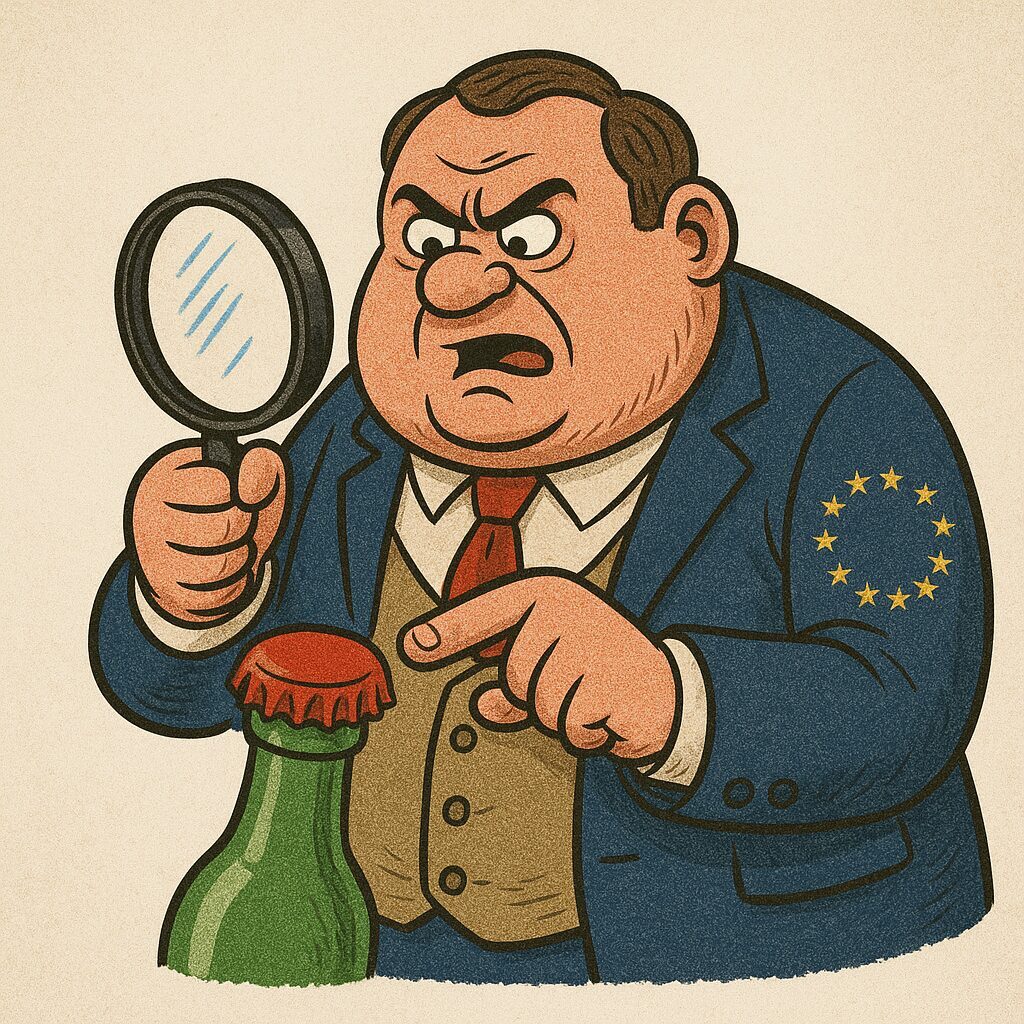
The European Union regulates virtually everything. A symbolic example: since 2024, plastic bottle caps must remain attached to the bottle — an environmental rule with direct impact on industries and consumers. And this isn’t an exception. The EU enforces rules on:
- The curvature of fruits like bananas and cucumbers
- The power of household appliances like vacuum cleaners
- Electrical outlet and plug standards
- Packaging, furniture, and electronics design
The regulatory excess reflects a paternalistic mentality where the citizen is treated as incapable of making decisions independently.
🔫 Gun Access: The Armed State, the Disarmed Citizen
Even with stability, low crime rates, and solid institutions, most European countries severely restrict ordinary citizens’ access to firearms. The process is intentionally bureaucratic, expensive, and exclusionary.
In Germany, for example, despite strict laws, there’s still relatively high firearm ownership — but this results from low corruption and objective rule enforcement, not a cultural embrace of self-defense (DW – Deutsche Welle).
In countries like the Netherlands, the UK, Spain, and Italy, access is practically prohibited. In many cases, even legitimate self-defense with a firearm can be interpreted as a crime (GunPolicy.org).
🧠 Philosophically and Politically: A Europe Tilted Left

Civilian disarmament is merely a symptom. The real issue lies in the dominant ideological orientation of contemporary European politics.
Most Western European governments are led by social democratic, Fabian, Green, or outright socialist parties. Even when “center-right” parties take office, they govern under the same progressive framework: heavy state control, forced redistribution, distrust of the individual, and apathy in the face of cultural decline.
The influence of the Fabian Society — a British socialist group founded in the 19th century — deeply shaped the modern European model: not through armed revolution, but by the slow and gradual replacement of freedoms with “securities” offered by the State.
The result? A Europe in decline:
- Economically, suffering from stagnation and youth unemployment
- Culturally, witnessing the erosion of traditional values and the advance of identity politics
- Demographically, facing alarmingly low birth rates and dependence on mass immigration
In short, Europe has abandoned the principles that once made it great — and today reaps the consequences of decades of centralization and citizen distrust.
✅ Conclusion: Selective Freedom Is Not Freedom
The European citizen may buy a subsidized electric car — but may not protect their home with a firearm. They may vote for progressive parties — but may not openly disagree without risking censorship. They may travel freely between neighboring countries — but live trapped in a system where even what they eat or consume is regulated.
Being partially free is the same as not being free.
And that is the contradiction of modern Europe: in the name of progress, it gave up liberty — and now fears that the citizen might want it back.



